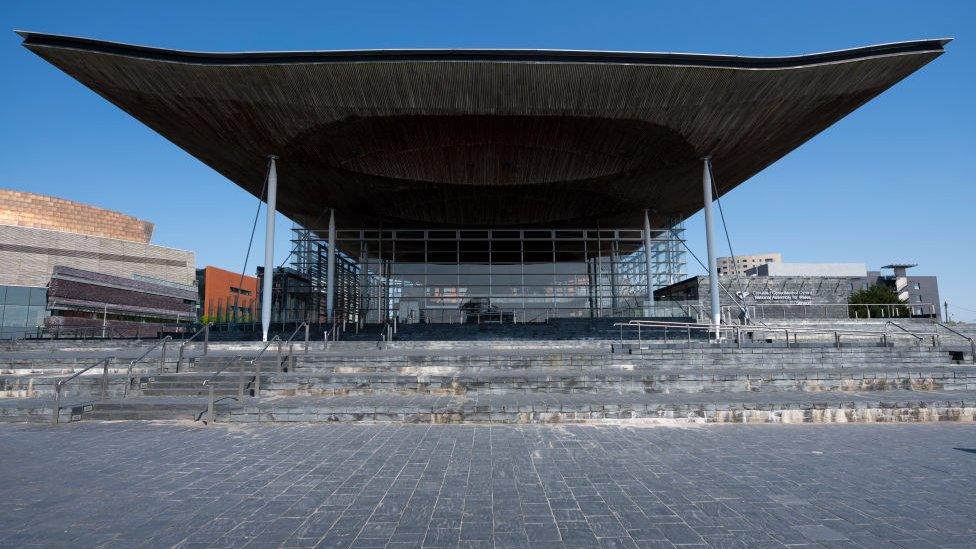Coronavirus: Welsh MPs criticise return to Westminster
- Published
- comments
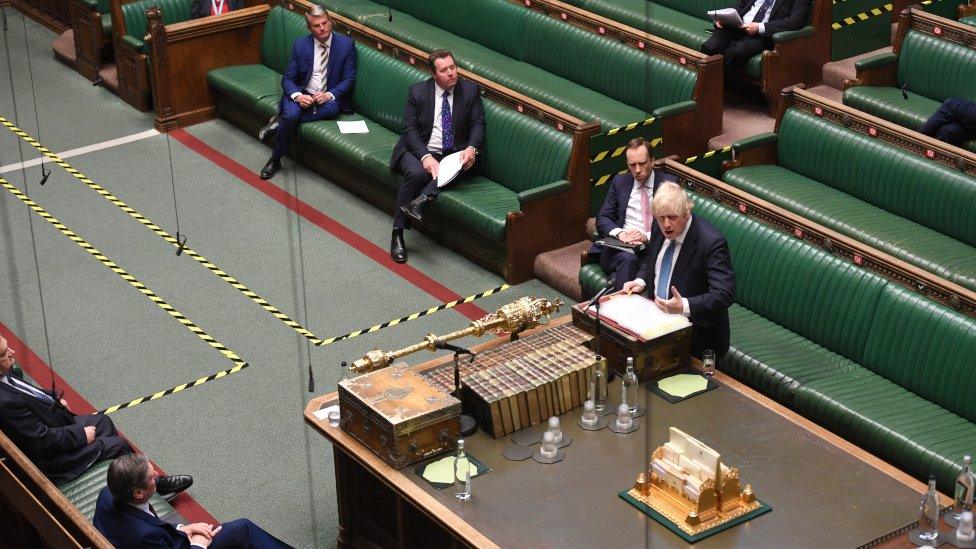
Prime Minister's Questions has taken place in an uncharacteristically quiet chamber
Welsh opposition MPs have criticised plans for members to return to Westminster.
The Leader of the House of Commons, Jacob Rees-Mogg, said MPs cannot do their jobs properly via video link and has asked them to return on 2 June.
Mr Rees-Mogg says he wants MPs to set an "example" to the public.
But Plaid Cymru MP Jonathan Edwards says it would set a "bad example" for Welsh MPs to travel to London against Welsh Government advice.
Mr Rees-Mogg said he is looking at ways to allow MPs who are part of the "shielded" group, and have been advised to stay at home, to still participate - and has agreed that MPs' staff and Parliamentary workers can continue to work from home.
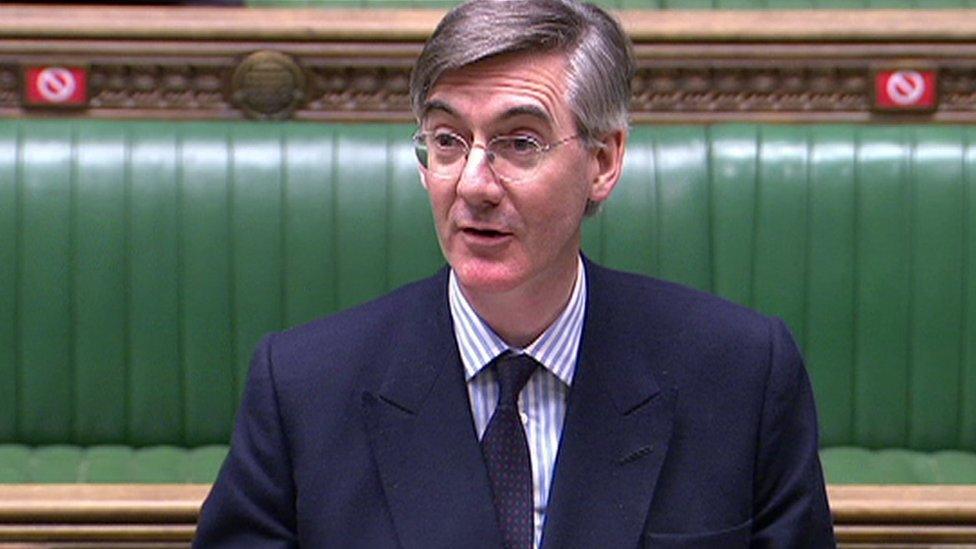
Jacob Rees-Mogg says there is no "flexibility of questions" in the hybrid model
But he rejected calls from opposition MPs to extend hybrid working, or to allow working from home on non-substantive matters such as ministerial questions and only travelling to Westminster to take part in key votes.
For the past few weeks, MPs have been able to take part in debates and ask questions via Zoom - and even vote remotely. No more than 50 MPs have been allowed in the Chamber at the same time to enforce social distancing regulations.
The Commons chamber is likely to remain limited to 50 MPs and voting could take much longer than it did before the coronavirus lockdown when MPs return.
Mr Rees-Mogg said on Wednesday that the hybrid Parliament had an "impact on legislative scrutiny" and meant debate was "becoming stilted."
He added: "In line with government advice for those who cannot do their jobs from home, I am asking members to return to their place of work", and said social distancing would be observed and Parliament would become a "Covid-19 secure workplace."
This statement was criticised by the Shadow Leader of the House of Commons Valerie Vaz who referenced MPs contributing via video link and said government advice was "if you can work at home you should do so".
The decision asking MPs to return to Westminster has attracted wide criticism from opposition MPs in Wales, where the current Welsh Government regulations say people should work from home if they can, and only travel to other destinations for essential purposes.
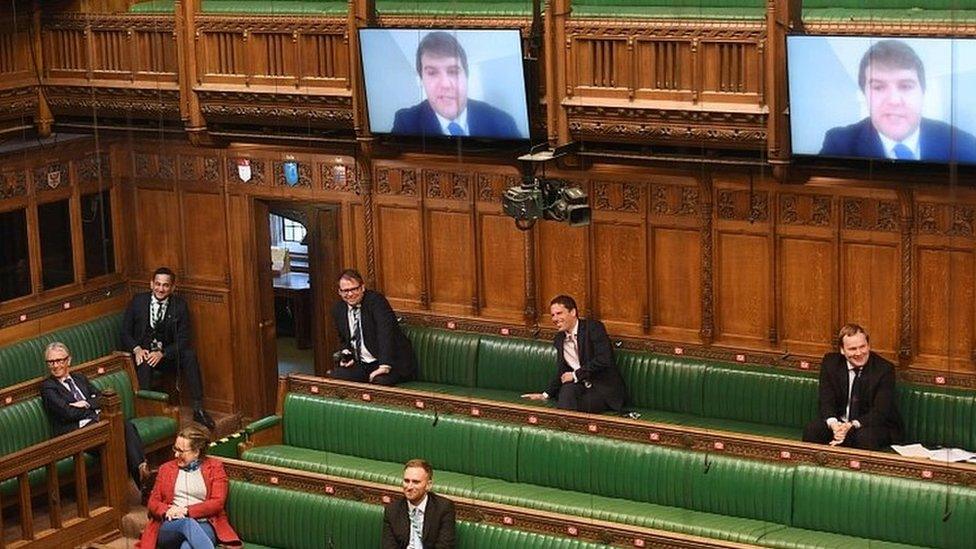
Under the hybrid system MPs have been taking part in Commons proceedings via Zoom
Chris Elmore, Labour MP for Ogmore, told BBC Wales: "My primary concern is that politicians are advocating the public health advice is followed.
"Clearly, the Welsh Government advice is different to the UK government advice that in essence is for England. And my primary concern is that the government in Westminster are putting unnecessary risk to staff in the House of Commons, and of course others who work around the estate."
The speaker of the House of Commons, Sir Lindsay Hoyle, has previously said he could suspend sittings if it became too crowded and that it could take an hour for MPs to vote in person while maintaining social distancing rules.
'Prolonged process'
Plaid Cymru MP Jonathan Edwards told BBC Wales he was concerned about voting in person with social distancing measures in place: "That's going to be a far longer, prolonged process with two metre gaps between everybody walking through to vote.
"Spending hours and hours and hours a day walking through a room to record your vote is not a particularly efficient use of an elected member's time."
Mr Rees-Mogg faced fresh accusations from Liberal Democrat MP Alistair Carmichael that asking MPs to return was "to get support back for the Prime Minister at PMQs" and "shield the government from scrutiny."
Labour Cardiff West MP Kevin Brennan had previously tweeted: "I think Rees-Mogg wants the House of Commons back in person so that Boris Johnson is not left alone at PMQs desperately looking about for support from empty loyal benches as he flounders trying to wriggle of the hook of Keir Starmer's penetrating interrogation."
But Mr Rees-Mogg called reports this move was to get support for the Prime Minister at PMQs "trivial".
Some Conservative MPs have welcomed the idea of a return to business as usual, with sources telling BBC Wales that they have expressed concerns about sacrificing traditional procedures and scrutiny at this time.
- Published20 May 2020
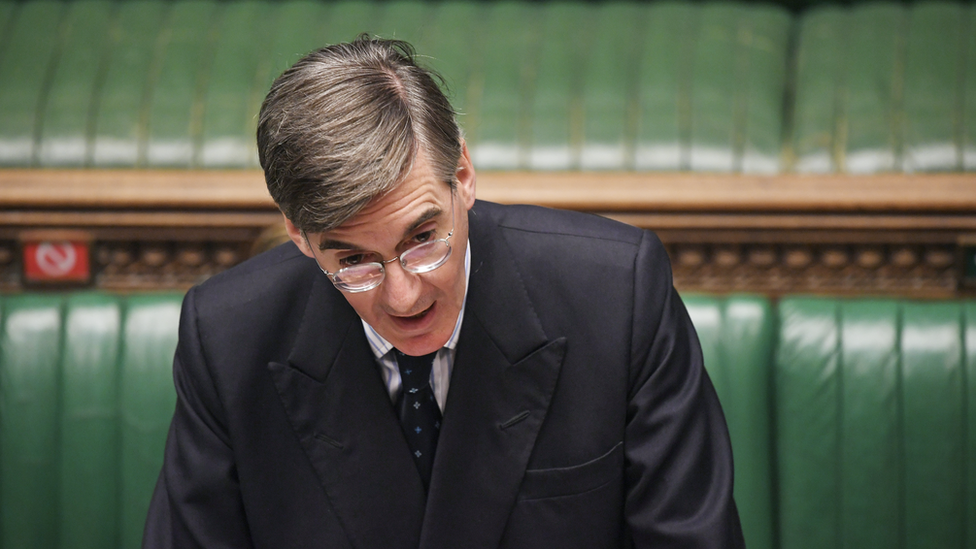
- Published12 May 2020

- Published13 May 2020
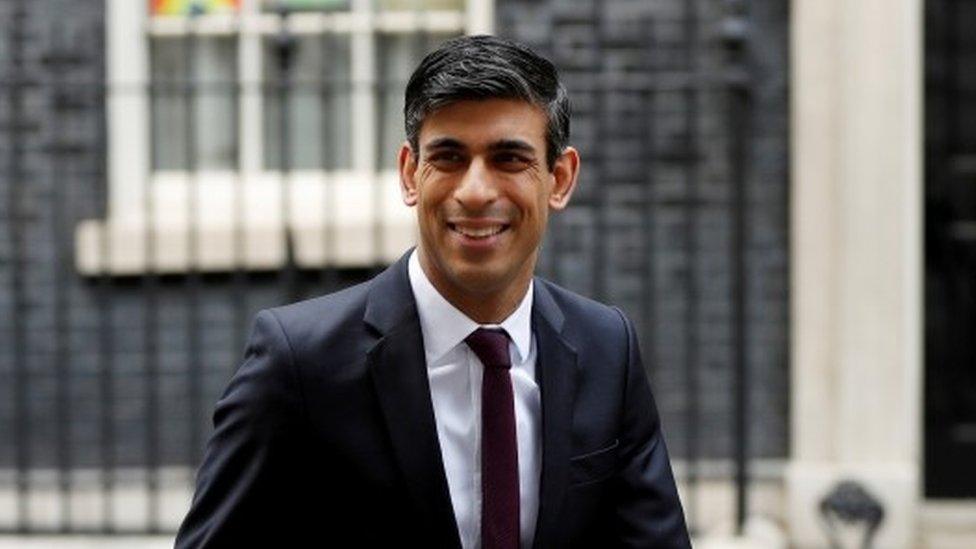
- Published13 May 2020
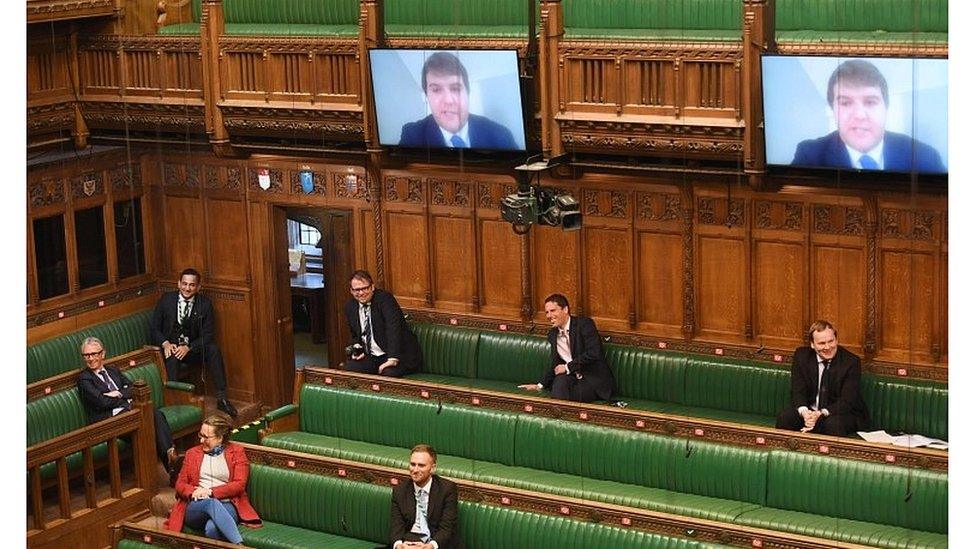
- Published21 April 2020
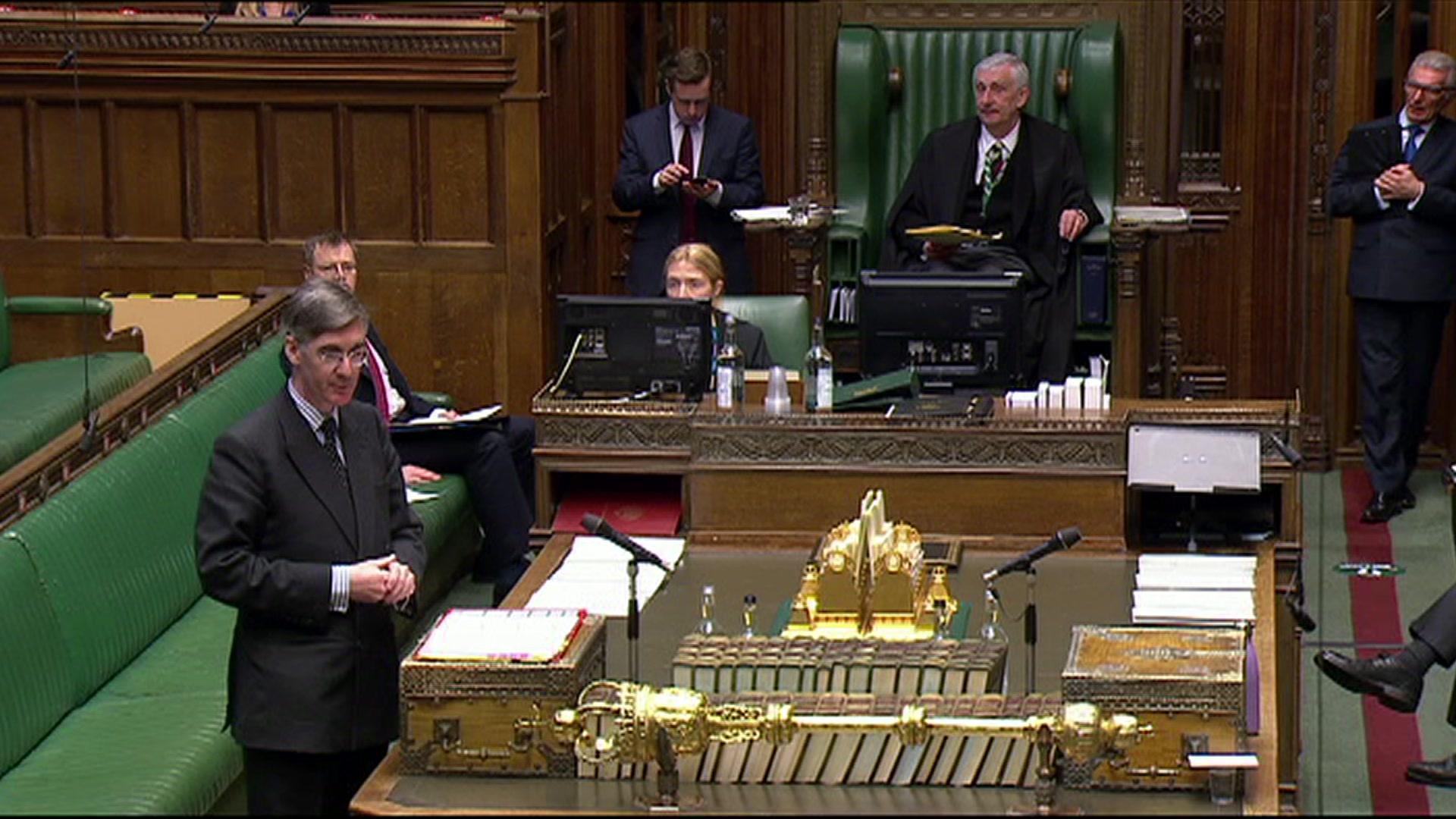
- Published22 April 2020
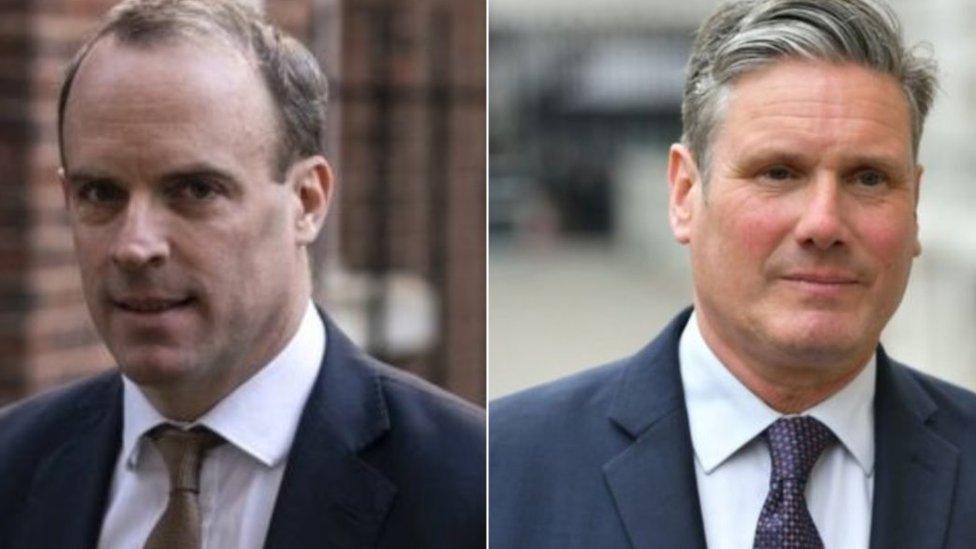
- Published6 May 2020
